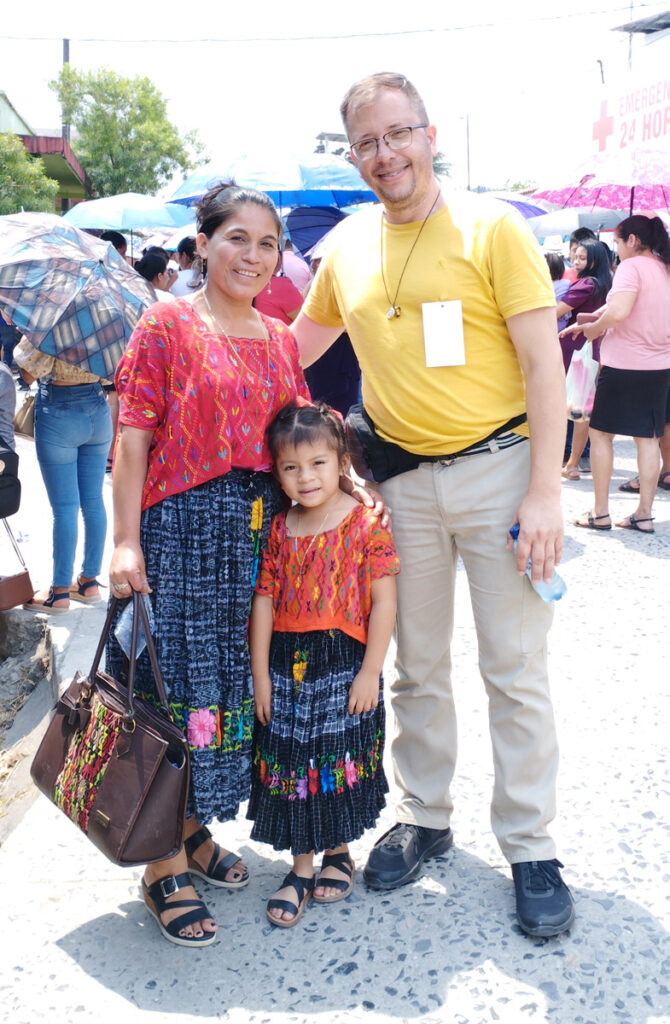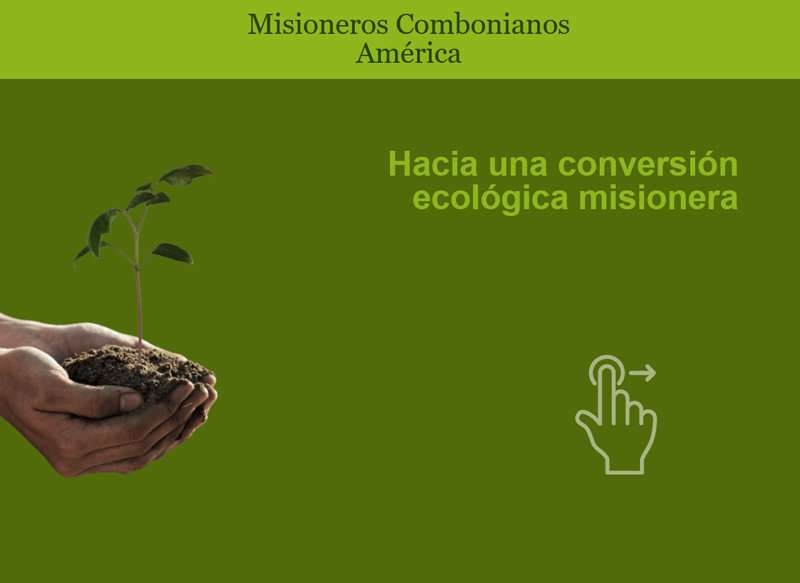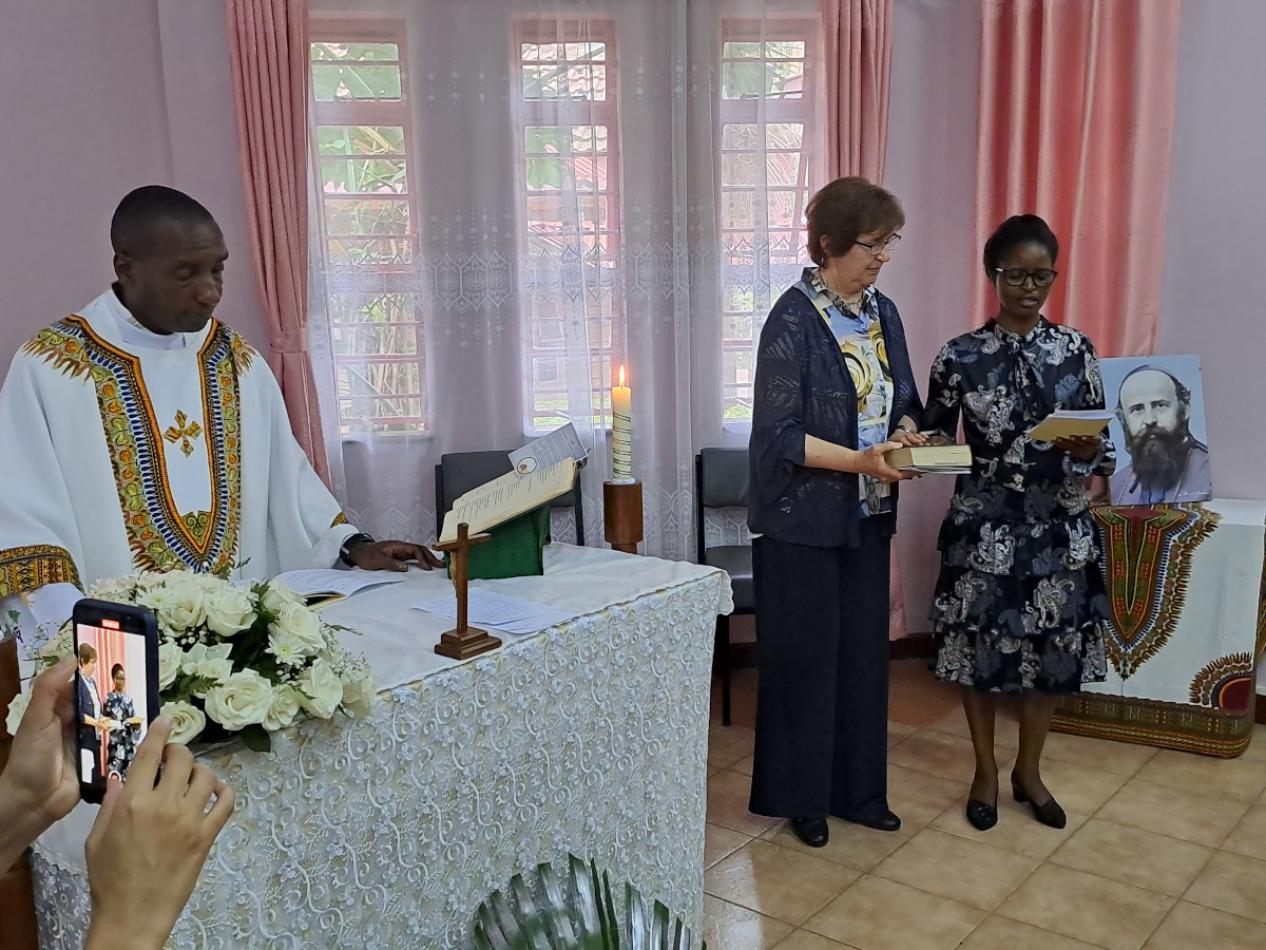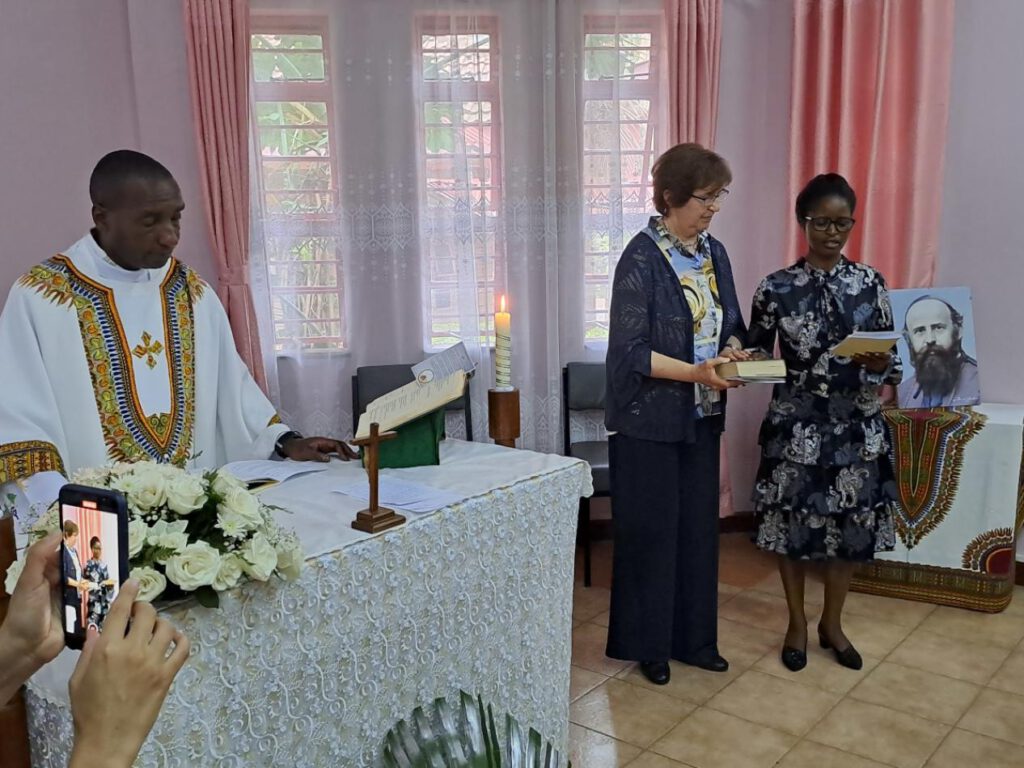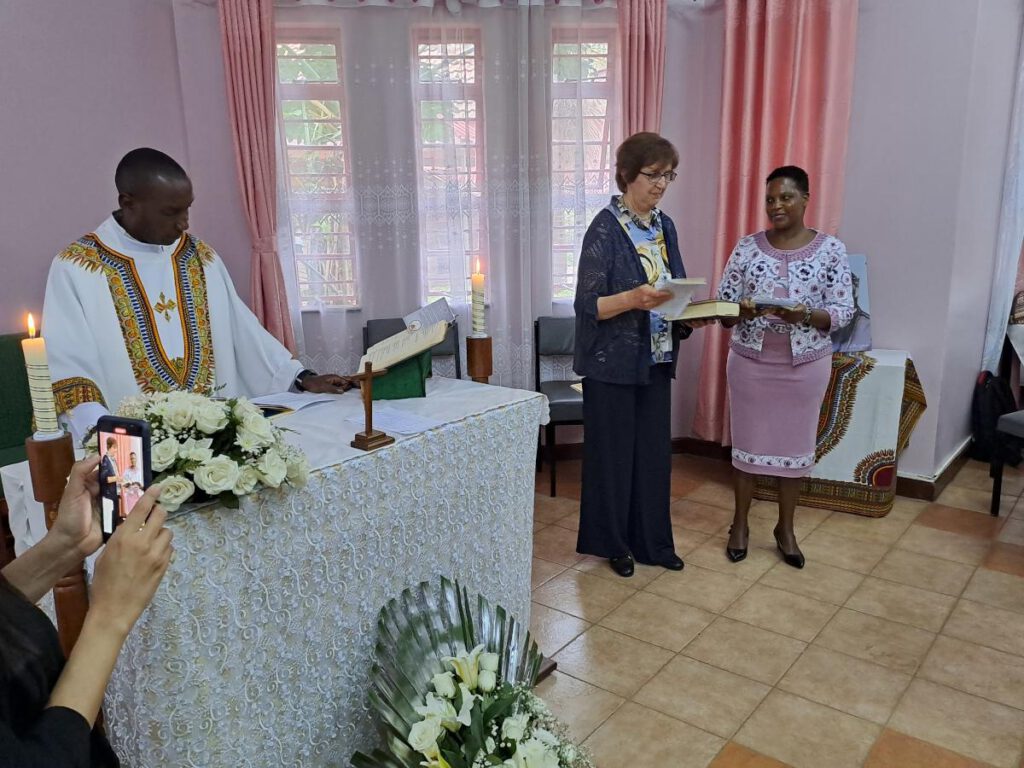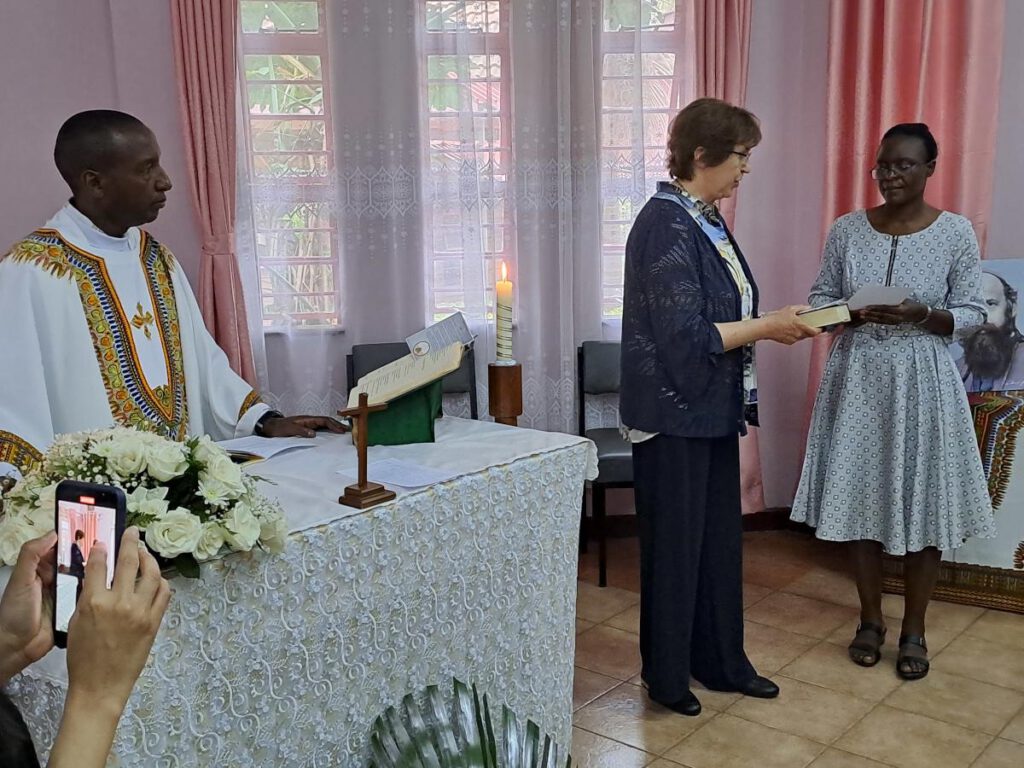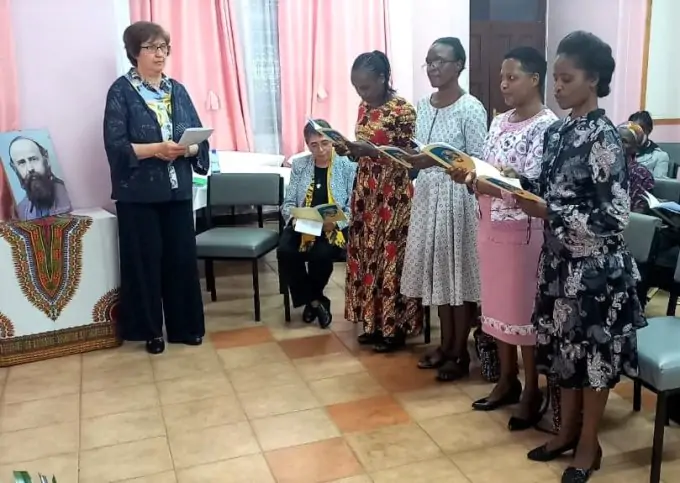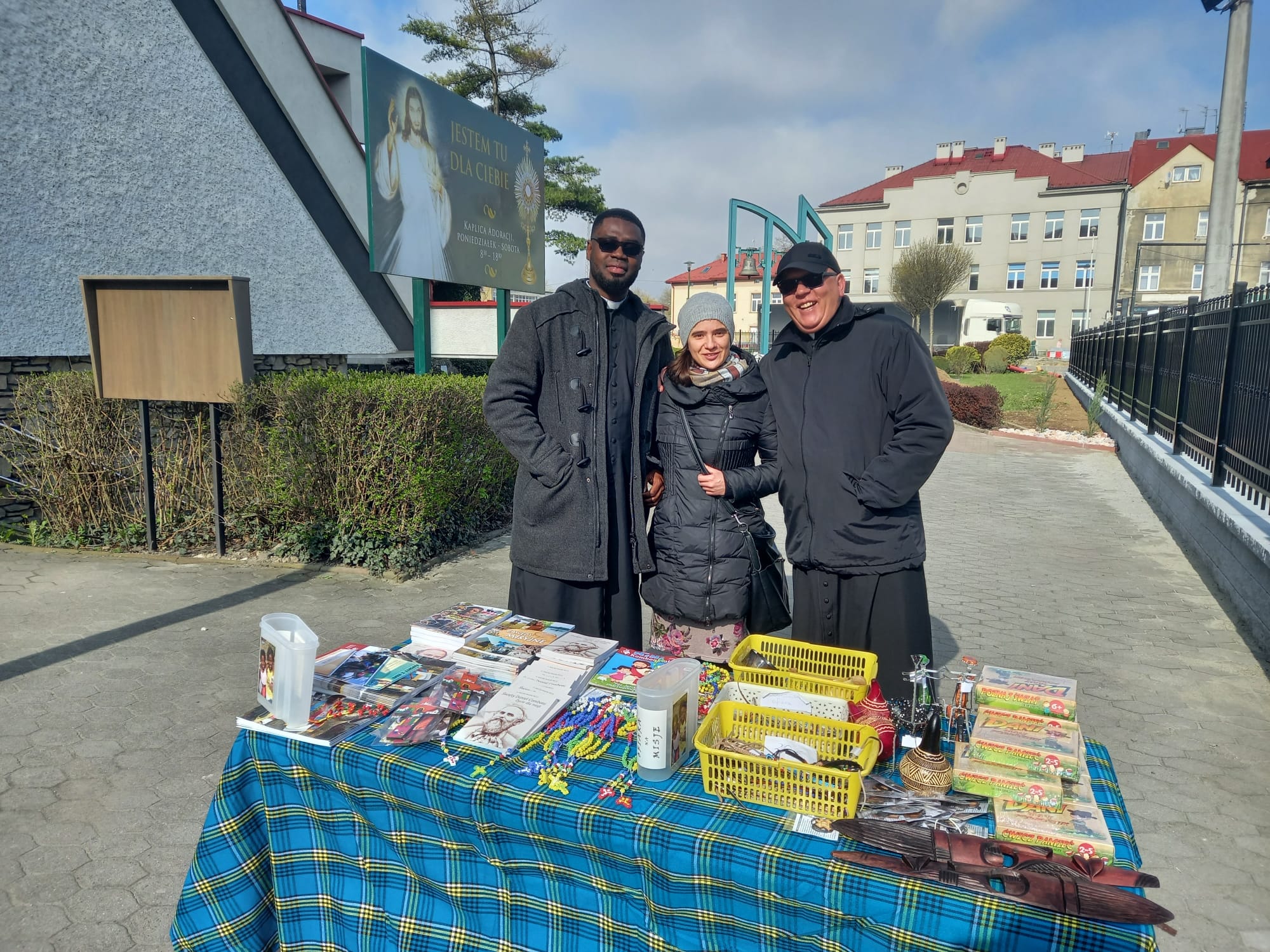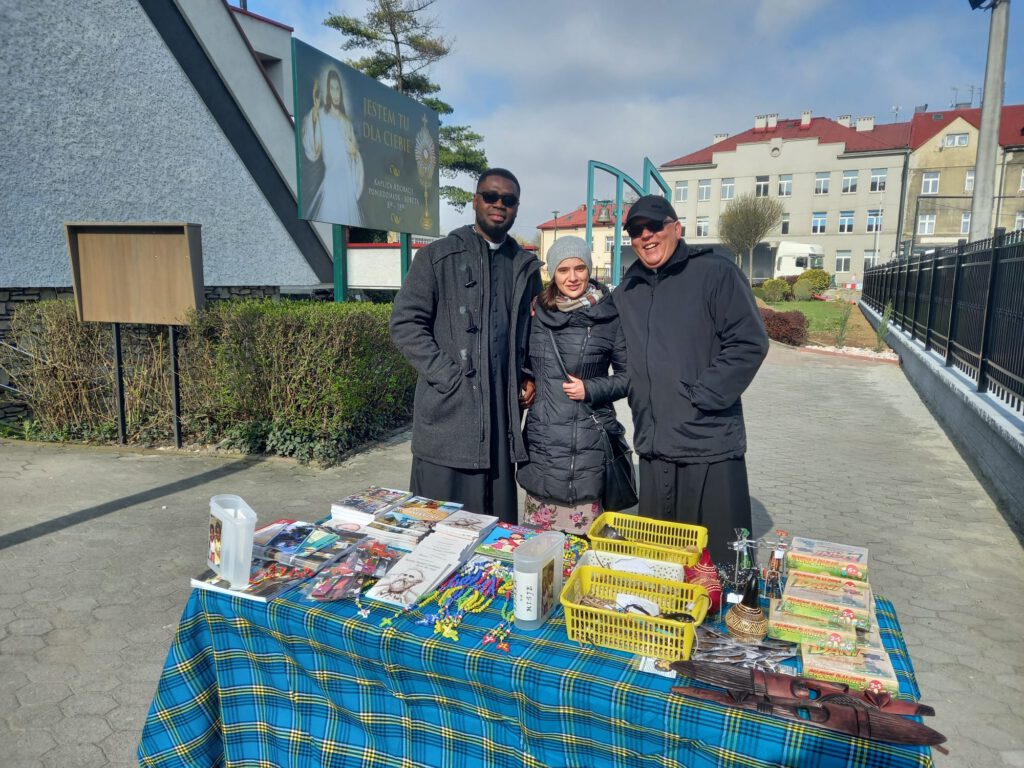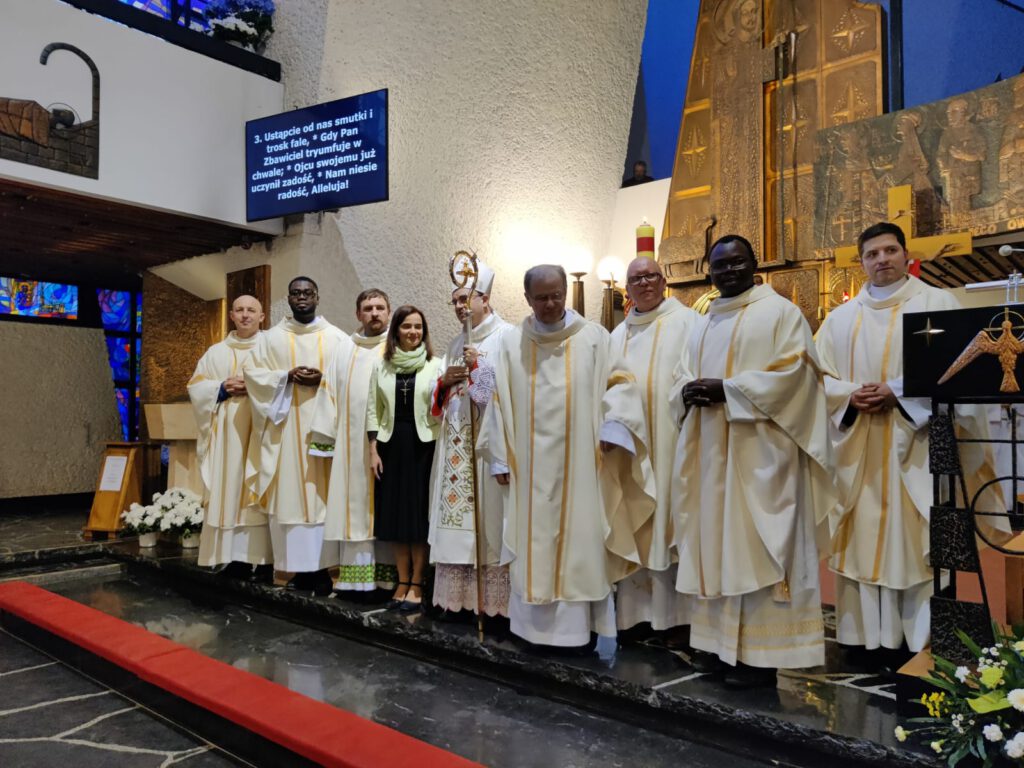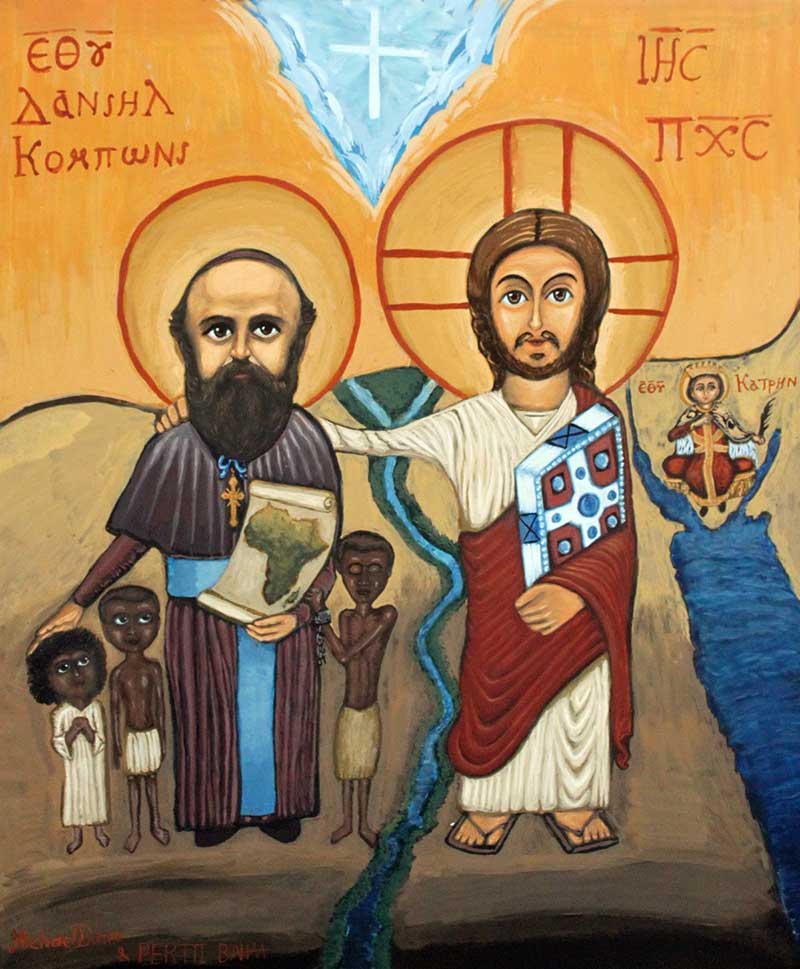I begin these humble lines first of all thanking God for having fixed his gaze on this servant.
The previous January, the Assembly of the CLM of the Province of Central America was held, where Brother Jesús Pérez, Advisor for Costa Rica of the CLM, talked with the Parish Priest of San Luis Petén, Father Aubert Gamende, about the possibility of receiving some members of our group for the Major Week in the Parish, and it was there where all this dream and illusion began.
For different circumstances, I left for Guatemala on March 29, with a suitcase full of fear, illusion, hope, but above all with the desire to be able to offer a little of all the love that God has had for me, the same love with which I was received in Casa Comboni.
I had the opportunity to share with the CLM of Guatemala, accompanying them in their project Chispuditos, knowing some Departments of the country, eating the delicious gastronomy (beef soup, plantain rellenitos, atoles, etc, etc, etc and etc ha ha ha ha), living the spectacular experience of their culture and great Faith, Palm Sunday in Antigua with the emblematic Processions, Intangible Heritage of Humanity.
On Holy Monday I start my trip to San Luis Petén, it is worth mentioning that the Parish is administered by the MCCJ, is made up of more than 140 villages (populations), some of them speak Spanish, others only speak the Q’eqchi dialect and others are mixed, all this territory comprises approx. 3000 square km and is served by 4 priests, that after 8 hours of travel, Father Fabrice receives me to take me to Casa Parroquial where as in Casa Comboni, I was received as another member of the house.
After resting for a while, Billy came to pick me up; to take me to know the Parish Clinic, where primary care services are provided to the parish population, not only of the Center, but also through the Health Campaigns they go to more distant populations, where the group of the CLM of Petén sometimes participate, we also visited the Nursing Home with many needs and that the Brothers of CLM Petén carry out a work of accompaniment and assistance, and have several projects to do in this house of permanent residence.
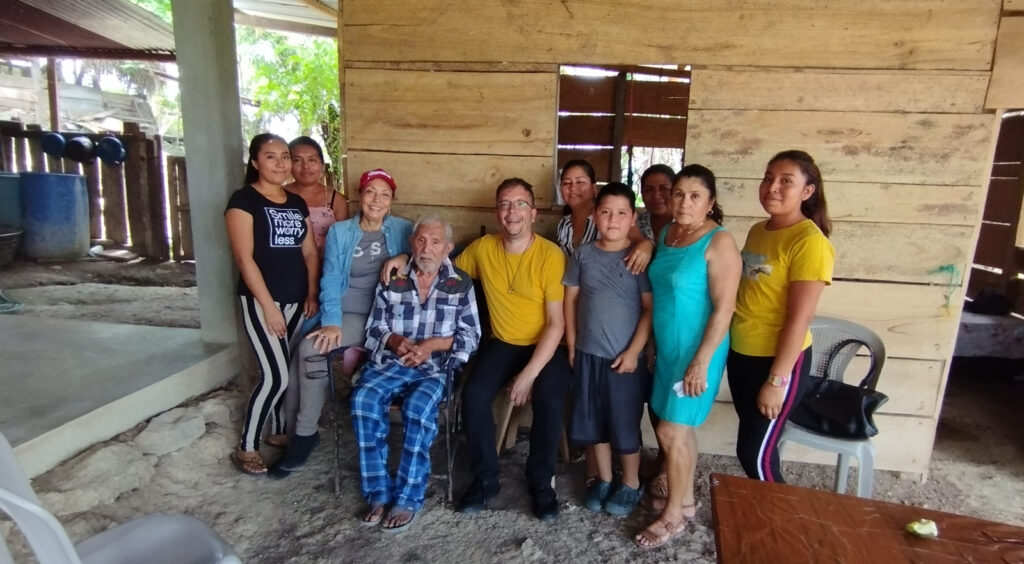
On Holy Wednesday, I was able to meet and share with the CLM of Petén, who were born on the same day and date as us here in Costa Rica, we shared, hesitated, talked about the realities of our group, they are a very dynamic group, and eager to do things well, as I mentioned to them I congratulate them and they know that humbly in what we can help there we will be there …..
On behalf of the Fathers, I was assigned and given the opportunity to collaborate in one of the villages, La Tortuga, who for this purpose came for me Alma, a woman dedicated in soul, life and heart to the service of her community, she is the Coordinator of the Village, together with her we organized the different celebrations for the days to come, Starting on Holy Thursday with the celebration of the Washing of the feet and the prayer in the Garden, on Friday morning all the Spanish-speaking villages were summoned to the Parish Center to live as a community the Way of the Cross and the Adoration of the Cross, we gathered almost 1500 people to the same prayer and feeling. Then in La Tortuga we had our celebration for those people who were unable to go to the parish in the morning because of their duties.
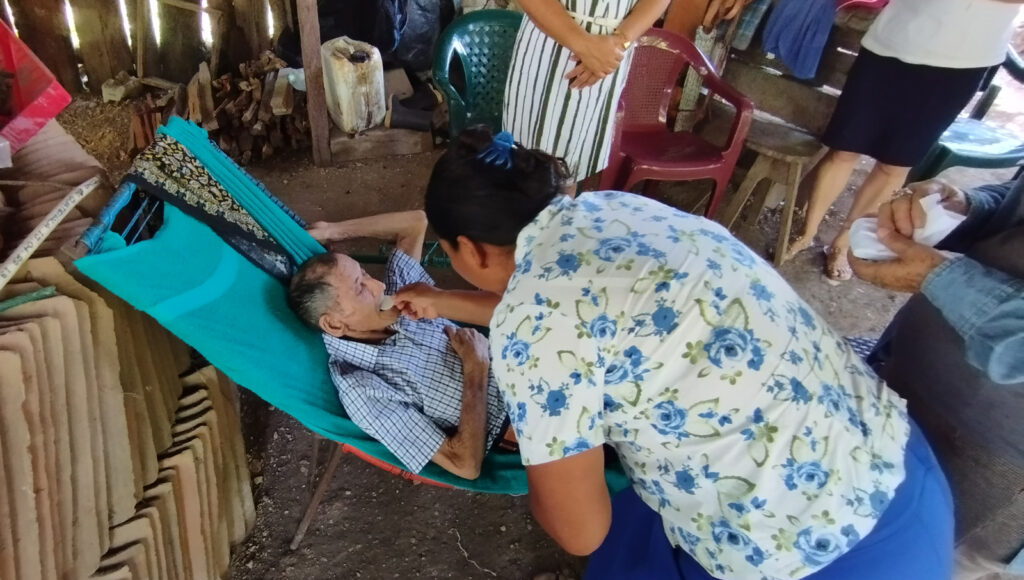
On Saturday morning we visited with community servants several families, some because they are just arriving to live in La Tortuga, others already had their time, and we took the opportunity to invite them to come at night to the Great Feast of the Easter Vigil, to the joy of most of them accepted the invitation, we also visited some sick people including Don Diego, I ask you to raise a prayer for him, he has cancer in his bones and suffers a lot of pain, Don Juan, we took communion to them, to see the joy they expressed to receive Jesus the Eucharist in their home and become one with Him, personally it was one of the many things that helped me to make the decision that I will tell you below.
In the night with great hope we celebrated the Great Easter Vigil, where children, acolytes, readers, choir and all of us as a community lived the great joy of the resurrection, the same joy that personally overwhelms me to this day.

On Sunday morning we were summoned again to the Parish Center to live the feast of the Resurrection, we started with a beautiful procession through different roads of the community and arrived at a space in front of the church where more than 150 children made their first communion, a way to end our Holy Week full of great joy.
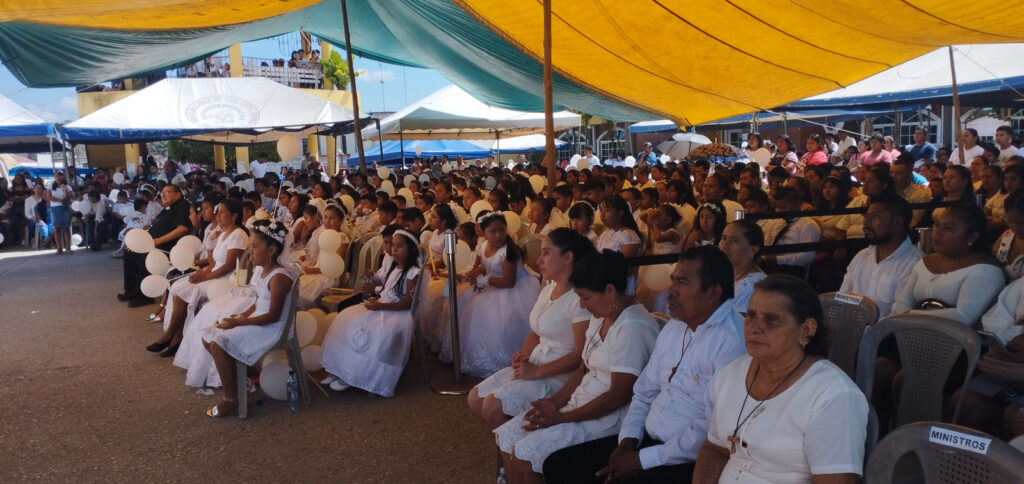
Truly, from the moment I was received by Brother Humberto at the airport until my return to Costa Rica, I was welcomed as one more, the words are too short to thank everyone and all the people who showed me their affection and empathy, for letting me see their culture and although we are from different countries, customs and culture, we have the same love that unites us and is greater than any ethnic difference.
Hearing …Here comes the missionary… echoes in my head with much humility, but constantly….
For some time now I have been praying to God to show me the way, I say to Him like Samuel “Speak, your servant listens…”, this trip was very useful to reaffirm the desire of my heart, to serve Him, as and where it is His will, so I entrust myself to your prayers, this coming June 16, the day we celebrate the Sacred Heart of Jesus, by the grace of God I will be assuming my commitment as a Comboni Lay Missionary, with the hope of being able to put myself at the service of the Comboni family.
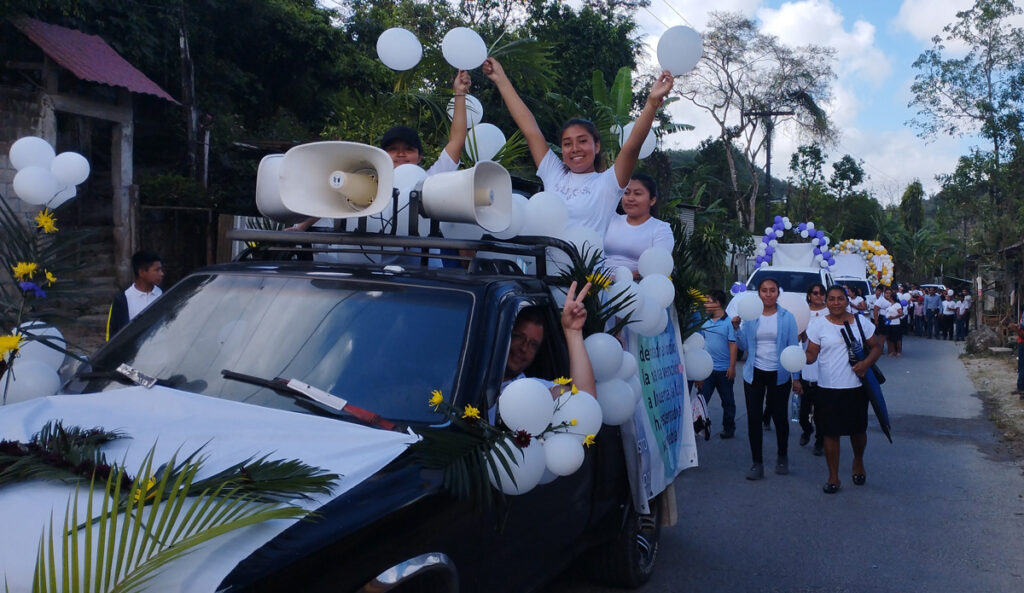
Thank you Guatemala, thank you San Luis, THANK YOU LA TORTUGA, CLM Guatemala, CLM San Luis Petén, MCCJ, I do not name them because I am afraid that I am leaving someone out, but I carry them all in my heart….
God bless you abundantly…
José David Rojas Q
CLM Costa Rica





